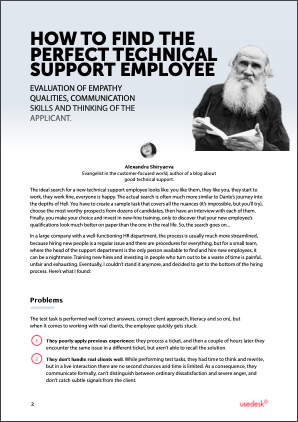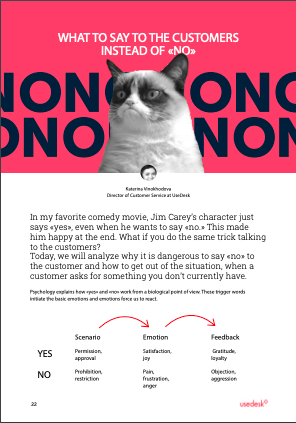Request a Demo
Send us a request for an online demonstration at the time that's convenient for you. We will give you an overview and answer any questions you may have about the system.
By clicking the button, you agree that you have read our Privacy Policy
How to Recognize and Deal with Emotional Burnout
Would you agree that it's great to start a new year happy, energized and in the mood for accomplishment? But sometimes, you may not feel that way at all. You don't feel good about what you do, nor do you have fun with things. You're negative for no reason. And you don't understand what is happening to you.

If that second state sounds like you, the cause may be emotional burnout.This article will tell you how to recognize it and what to do to make it easier to deal with.
First, check yourself against the checklist – note how you feel:
✓ apathy,
✓ fatigue,
✓ irritability,
✓ loss of interest in work and life,
✓ desire to distance yourself from society,
✓ strong changes in appetite,
✓ insomnia,
✓ exhaustion — physical, emotional and mental,
✓ frequent colds and weakened immune system,
✓ body pains — for example, muscle pain or headaches.
✓ fatigue,
✓ irritability,
✓ loss of interest in work and life,
✓ desire to distance yourself from society,
✓ strong changes in appetite,
✓ insomnia,
✓ exhaustion — physical, emotional and mental,
✓ frequent colds and weakened immune system,
✓ body pains — for example, muscle pain or headaches.
Next, exclude other causes for these conditions:
- Loss of resources. A person should be filled with help in the same way a phone charges. The phone won't turn on without charging. So a person who is not full will not act until their strength reappears. This resource often goes away when we do not do something that we enjoy and neglect engaging in physical activity,the things that allow us to get rid of the accumulated stress that does not go away on its own.
- Serious problems and crises – the experience of loss, family quarrels or the political situation in one's country can strongly influence us.
- Health problems. Only a doctor can diagnose and prescribe treatment, so it is worth going to a therapist.
If none of the three points applies to you, chances are you have burnout. Like any state of yours, you need to accept it. Each stage of life teaches something – both bright and gray.
Ask yourself a few questions:
- Did my work bring me joy? When did it stop bringing joy?
- Do I sincerely want to work at this job, or am I doing it out of a sense of duty? For example, I need money or to support my family.
- Am I doing too much?
- Am I afraid of losing my job?
- Do I know what I want to do? What did I dream about as a child? What did you want to become? What did you do as a child?
- Is money important to me? Or do I not want to earn more but instead try new and excitingthings?
The answers can be written on paper, making it easier to analyze the situation.
- If you realize that work has never been joyful and you work out of a sense of duty or fear, you will have to change it — that is, if you want to be healthy and happy.
- If your job made you happy and you want to keep doing it, try to remember when the enthusiasm was lost. Find the reason.
- Prioritize. Think about what is important to you in your work, what exactly you enjoy: team, results, praise, etc. Do you like working alone or with people? Remotely or in the office?
Make a plan of action. Here are the steps it can take:
- I cannot quit my job because of money → I continue to work for some time, looking for activities that I like, saving up money for development in a new field.
- I feel that I am doing the job of two people → I go to the manager and ask to delegate some of the tasks.
- I need a little time out to think about the life → I go to the manager and ask for a vacation.
- My manager doesn't understand burnout and considers me a whiner → I look for another job.
Things that can help you deal with burnout faster and keep you physically, emotionally, and spiritually healthy:
- Physical activity — with the help of physical activity, you will relieve stress and throw out the accumulated negative feelings. It can be running, dancing, swimming, boxing, yoga, skiing or traveling. Minimum — walk a couple of hours a day;
- Enjoyable rituals – for example, take a relaxing bubble bath at the end of the workweek or buy fresh flowers for your home.
- Meditation;
- Breathing exercises;
- Massage;
- Bath;
- Talk with interesting people who are passionate about something;
- Help. Feel free to ask people to help you — believe us, many will be happy to do something for you. For example, talk about your experience of burnout, listen to yourself. When a person stops being ashamed of their requests and accepts help, their self-esteem improves.
Share with your colleagues:
Did you like this article?
Error get alias
We know a lot about customer service
Once every two weeks, we will send exciting and valuable materials about customer service - articles, cases, and system updates. Do you mind?







